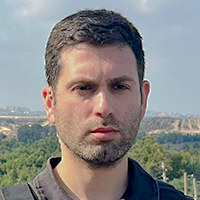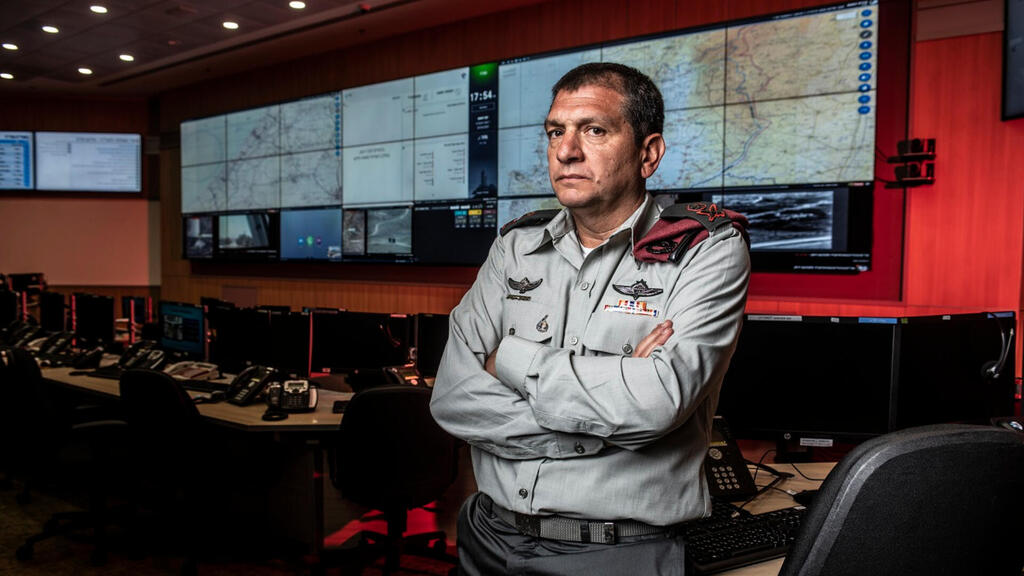Getting your Trinity Audio player ready...
IDF Military Intelligence head Major General Aharon Haliva on Monday tendered his resignation to Chief of Staff Lieutenant General Herzi Halevi for his part in the intelligence blunders that led to the Hamas massacre on October 7.
In his resignation letter, Haliva did not take personal responsibility for his part in the failures but rather a general accountability, without detailing his specific missteps.
4 View gallery
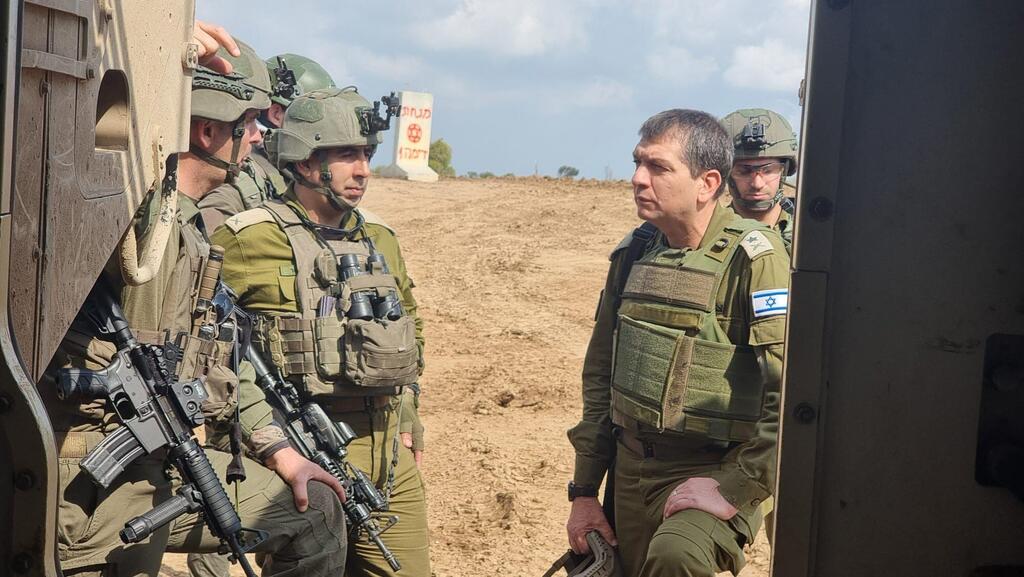

IDF Military Intelligence head Major General Aharon Haliva (center)
(Photo: IDF Spokesperson's Unit)
"I have carried the burden of that dark day with me every day and night since. I will forever carry the terrible pain of the war," he wrote.
Additionally, he called for the establishment of a state inquiry commission. "I am convinced, for the sake of the State of Israel, the Israeli people and future generations, that it is appropriate to set up a state inquiry commission that can thoroughly, deeply, comprehensively and critically investigate all the factors and circumstances that led to the tragic events," he wrote.
Haliva decided early in the war to resign from his position due to the failures of October 7, a decision he reiterated in recent discussions with the IDF chief. Now, with the practical end of the war in Gaza, he has resolved to follow through with his resignation, making him the first official to step down due to the mishaps. He will remain in his role until a full handover to his successor is completed.
4 View gallery
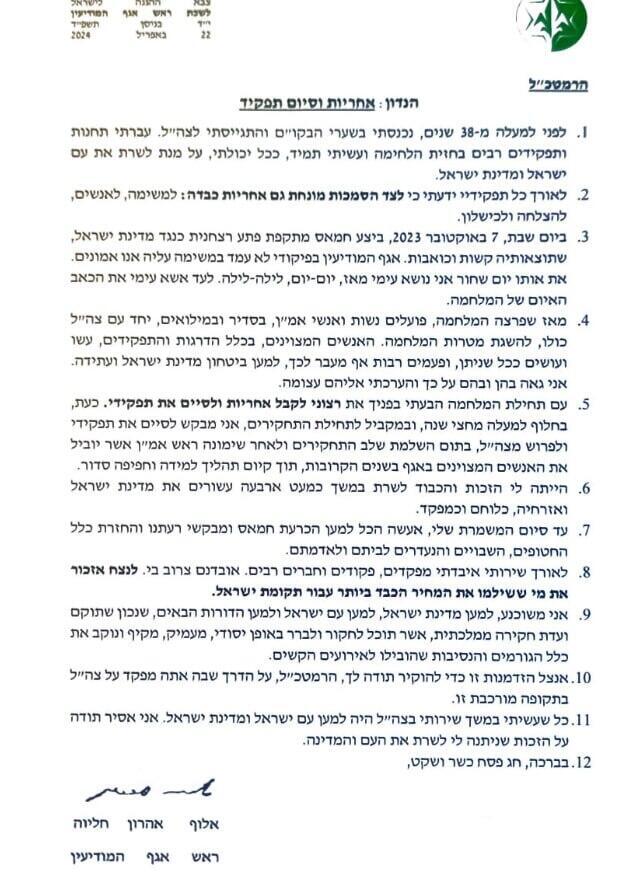

IDF Military Intelligence head Major General Aharon Haliva's resignation letter to Chief of Staff Lieutenant General Herzi Halevi
According to the IDF, Haliva will conclude his duties and retire from the military after a successor is appointed through a formal and professional process, coordinated with the chief of staff and the defense minister. "The chief of staff thanked Major General Aharon Haliva for his 38 years of service in the IDF, during which he significantly contributed to national security as a soldier and a commander," the military said.
Intelligence fiasco
Haliva took responsibility for the oversight in anticipating the surprise attack about a week and a half after the war began. "We failed in our most crucial mission, and as the head of Military Intelligence, I bear full responsibility for this failure," he said.
"In all my visits to intelligence units, I emphasized that the war's outset was marked by an intelligence failure. Military Intelligence under my command failed to warn of the Hamas terror attack. What needs to be investigated will be examined thoroughly and critically, and conclusions will be drawn. However, our immediate task is singular—to fight and win."
Since October 7, it has become evident how blind military intelligence was to the developments in the Gaza Strip, failing to correctly interpret the signs of the impending attack.
4 View gallery
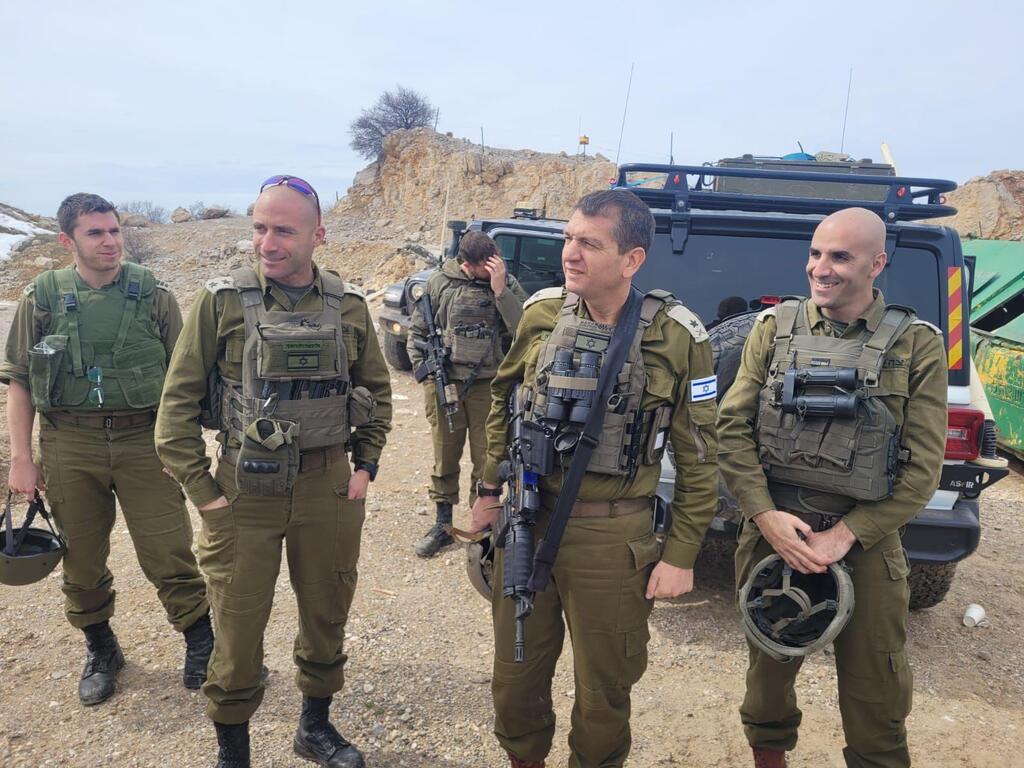

IDF Military Intelligence chief Major General Aharon Haliva (center)
(Photo: IDF Spokesperson's Unit)
Among other missteps, intelligence misread Hamas and Palestinian Islamic Jihad's military drills, which took place right under their noses, even in the days before the massacre. Various assessments repeatedly claimed that Hamas was deterred, even shortly before it launched its deadly attack; they also misinterpreted the terrorists' organization on the night before the invasion of the surrounding area.
Despite his responsibility for the oversight, on that fateful night between Friday and Saturday, Simchat Torah, he was not part of the discussion in the most senior forum. Security officials received what are called "weak signals" suggesting something was happening on the border with Gaza.
The head of military intelligence was on vacation in Eilat with his family. At 3 a.m., his assistant called to update him with information from the intelligence officer of the Southern Command, suggesting that Hamas might be preparing an initiative, but nothing on the scale of the massacre. Alongside the indicators, there were also "reassuring signs," and the conclusion was that any Haliva should be updated on any developments immediately.
However, the military high command then decided on a consultation in the highest-level forum: Chief of Staff Lt. Gen. Herzi Halevi, Operations Directorate head Maj. Gen. Oded Basiuk and Southern Command chief Maj. Gen. Yaron Finkelman, who was also on vacation in the Golan Heights. Haliva, as mentioned, did not participate.
Three weeks earlier, Haliva had spoken with the heads of the Research Division in the Intelligence Directorate and expressed concerns about the future. "It's not certain that the worst is behind us; we are facing complex days ahead," he said.
Last January, at an intelligence cadet graduation ceremony, Halevi addressed the criticism of ignoring warnings, expecting the new officers "to always voice their professional opinions." He added, "Learn from the mistakes and remember to keep the good things."
In November, a month and a half after the outbreak of the war, Chief of Staff Halevi addressed the intelligence failure that preceded Hamas's surprise attack, saying, "The IDF and Military Intelligence failed on October 7, but it is not appropriate for IDF commanders to be currently engaged in discussions about responsibility; we need to focus on fighting."
Months before the war began, in a room filled with the IDF's highest-ranking officers, Galilee Division Commander Brig. Gen. Shai Klapper and Haliva got into an argument.
Klapper warned that the scale of forces was insufficient for dealing with a surprise attack and cautioned that without early warning, "the mission—to protect the northern settlements" would remain an empty slogan in the command centers. Haliva then dismissed his concerns, saying that if there were no early warnings, he and the entire General Staff might as well resign.



